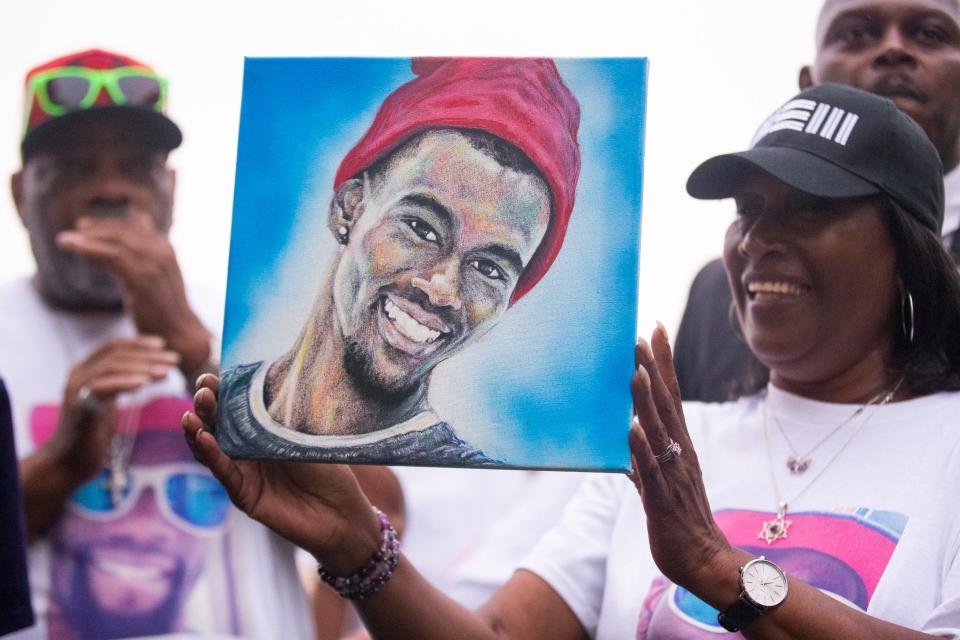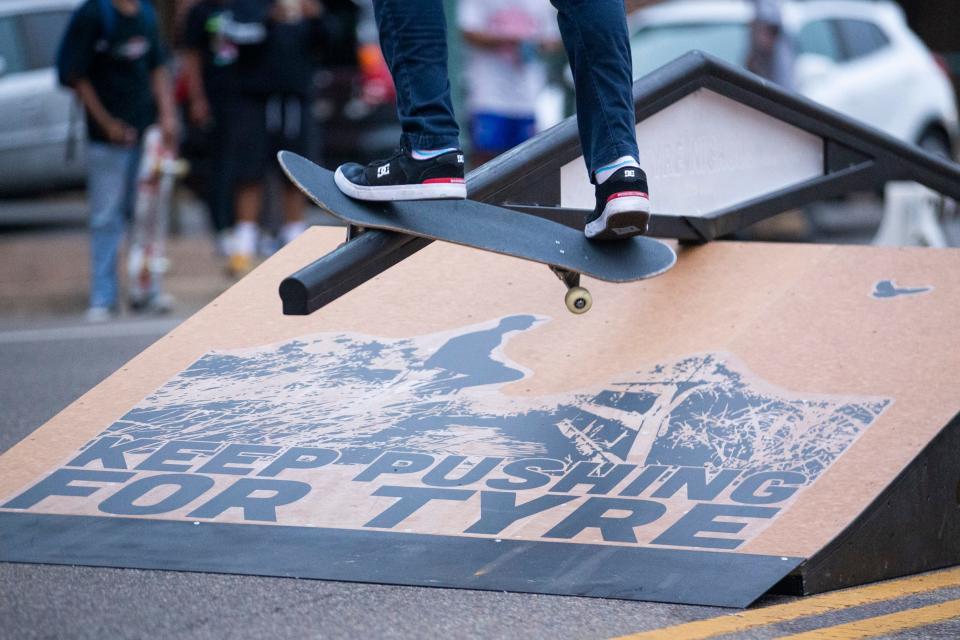'We have to embolden our people.' Civil Rights Museum hosts panel on racism and policing
Police brutality, bail reform and creating tangible change were a few of the many complex topics discussed Wednesday at the National Civil Rights Museum's panel on both the historical and current relationship between systemic racism and American policing strategies.
The event, part two of four, entitled “The Resolve: Eliminating Systemic Racism and Toxic Cultures,” was free and featured four panelists with a plethora of knowledge and experience in policing, activism, criminal justice research and American civil rights history.
"We want to raise issues, talk about challenges, and derive some solutions that people feel like they can act upon," said Russell Wigginton, President of the National Civil Rights Museum. Wigginton said he knows the importance of keeping tragedies like Tyre Nichols' death in the public consciousness.
"We know it's complicated, we know there's a lot of moving parts," he said, "but we're never going to get there if we just feel bad in the moment, and then as time goes by, we go back to our normal practices and procedures."

Dr. De Lacy Davis, a 20-year veteran police sergeant and founder of Black Cops Against Police Brutality, was a panelist for the event. Davis relayed a story of his personal experience on the police force; in 1997 he reported a fellow officer for beating a Black man, and he was attacked and threatened because of it.
"We decided that if we wanted to make change we needed to make rank," Davis said. "So that's what I set out to do; to make rank, to make change and to build the next generation of officers that were going to think the way we're thinking. Now that meant that my career ended sitting at number three on the lieutenants list because I was told 'we will never promote you.' You have to pay a price."
Dr. Howard Henderson, director of the Center for Justice Research and criminal justice professor at Texas Southern University, also appeared on the panel. Henderson emphasized the necessity to move beyond discussion and create substantial policy change.
"We have not learned how to galvanize Black people," Henderson said. "We don't know how to come together for meaningful change. We can throw a party, we can have a fiesta, but we haven't turned our ability to say, 'let's do something productive with this opportunity', and affect policy. We have to embolden our people who have the spirit of change to do just that."

Political strategist, organizer, activist and native Memphian Amber Sherman has policy changes in mind for a critical issue receiving significant discussion in Memphis today: bail reform.
"I don't think [the bail system] can be reformed, especially when you consider the amount of people that are being detained," Sherman said. "I did my thesis on money bail, and one of the most common things people don't know is that people are spending five to seven years in pre-trial detention at 201 Poplar. Because of that, we sued the county and they now have a new standing bail order."
For subscribers: Shelby Co.'s old bail system was unconstitutional. Why is the new one drawing political criticism?
Sherman said the idea that holding a bounty over someone's head will make them return to court is an inherently flawed concept.
"We don't have to have bail," she said. "Nashville has less people than us, and they have not had a bail practice in place for several years. You have a misdemeanor, you get a citation, that's it; folks still come back to court."
Quick accountability for officers who commit serious crimes has remained at the forefront of discussion throughout the history of the civil rights movement. Historian Ryan Jones, the Civil Rights Museum's curator, cited the case of Larry Payne, a Black teenager killed during the 1968 sanitation workers' strike in Memphis as an example of how speedy justice could have prevented further needless deaths.
"If Larry Payne's family had received justice in 1968, then what happened to Michael Brown, Trayvon Martin, may not have happened because the example was set then," he said. "Until the criminal justice system arrests swiftly police officers that are senselessly killing unarmed people, specifically African Americans... until there is justice that prevails on the behalf of the victims and for the victims' families, other police officers won't feel as hesitant on taking on some of these horrific crimes."
Part Three of the series, "The Restoration: Community Healing Toward Solutions," will convene this September in the National Civil Rights Museum, both in person and available through online streaming.
Jacob Wilt is a reporter with The Commercial Appeal. He can be reached at Jacob.Wilt@commercialappeal.com.
This article originally appeared on Memphis Commercial Appeal: National Civil Rights Museum hosts panel discussion on racism, policing

